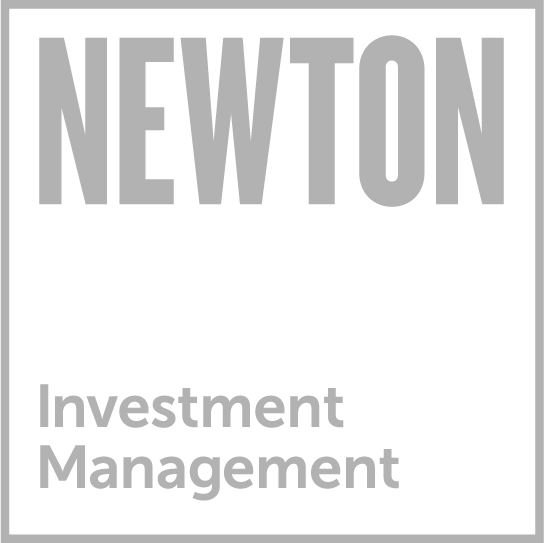October 2023
Brian Ferguson has worked at BNY Mellon Investment Management companies since 1997. Before embarking on a career in investment management, he earned a BA in Economics and International Relations at Bucknell University and an MBA at Columbia Business School. Here he discusses his experience and market outlook.

Brian Ferguson
Senior Portfolio Manager at Newton Investment Management, part of BNY Mellon Investment Management– in Boston. Joined BNY Mellon in 1997.
Describe your background.
I’ve been in the investment business roughly 30 years, 25-and-a-half have been with BNY Mellon Investment Management companies. I’ve been a portfolio manager since 2000 and specifically for the US Dynamic Large Cap Value Strategy since 2003. I studied at Bucknell University for undergrad where I started the investment club. I went on to earn my MBA at Columbia Business School. Early in my career I had the luxury to work for John Neff – often considered one of the best value portfolio managers in the industry and author of John Neff on Investing.
What influenced you to choose a career in investment management?
At a very early age I developed a passion for financial markets and equity investing. I got the bug from my grandfather, who was an investor. He is really the one I credit with igniting that fire in me.
At that early age, I took interest in investment books and Warren Buffett’s annual letters to shareholders.
What made you choose value investing?
The people that really influenced me along the way and looked up to in this business early on were value investors. It’s just something that really resonated with me throughout my investment career. To this day I am in awe and always eager to consume what Warren Buffett, John Neff and others have said or written.
How would you characterize your style as a portfolio manager?
From pretty much the start of my career, I’ve been intrigued with the investment philosophy that starts with value but doesn’t stop there. I firmly appreciate supplementing value with an analysis of business fundamentals and business momentum. The power of that combination can help avoid getting tangled up with the value trap. It also helps find companies that can maintain and enhance their value per share.
How do you think about risks?
I believe that risk is something that is very important. My job isn’t just to seek good investment returns, but it’s also to seek good risk-adjusted returns. One of the best ways to manage portfolio risks starts at the individual stock level by adhering to a process of populating the portfolio with the best risk-reward opportunities.
I believe that one of the great aspects of value investing is buying a stock at a discount to what it’s worth. That discount is often referred to as the margin of safety, thus, the bigger the discount, the bigger the margin of safety. In addition, I have a myriad of internal portfolio risk analytics that are instrumental in the pursuit of strong risk-adjusted returns.
What is your favorite metric?
There are so many, but if I had to call out one favorite it would be uncovering and identifying underappreciated improvements in returns on and of capital for a given company.
Is there a connection between your passions (outside of investing) and value investing?
I feel blessed my hobby and my passion is also my livelihood. I’ve been an investor for decades and it’s just something I really enjoy. I think country singer Luke Combs says it best in his song, Doin’ This: “I’d still be doing this if I wasn’t doing this.”
All investments involve some level of risk, including loss of principal. Certain investments have specific or unique risks. No investment strategy or risk management technique can guarantee returns or eliminate risk in any market environment.
This material has been provided for informational purposes only and should not be construed as investment advice or a recommendation of any particular investment product, strategy, investment manager or account arrangement, and should not serve as a primary basis for investment decisions. Prospective investors should consult a legal, tax or financial professional in order to determine whether any investment product, strategy or service is appropriate for their particular circumstances. References to specific securities, asset classes and financial markets are for illustrative purposes only and are not intended to be and should not be interpreted as recommendations. Information contained herein has been obtained from sources believed to be reliable, but not guaranteed. No part of this material may be reproduced in any form, or referred to in any other publication, without express written permission.
Views expressed are those of the author stated and do not reflect views of other managers or the firm overall. Views are current as of the date of this publication and subject to change. The information is based on current market conditions, which will fluctuate and may be superseded by subsequent market events or for other reasons. Forecasts, estimates and certain information contained herein are based upon proprietary research and should not be considered as investment advice or a recommendation of any particular security, strategy or investment product, and should not be used as the primary basis for any investment decisions. Information contained herein has been obtained from sources believed to be reliable, but not guaranteed. Please consult a legal, tax or financial professional in order to determine whether an investment product or service is appropriate for a particular situation.
“Newton” and/or the “Newton Investment Management” brand refers to the following group of affiliated companies: Newton Investment Management Limited (NIM) and Newton Investment Management North America LLC (NIMNA). NIM is incorporated in the United Kingdom (Registered in England no. 1371973) and is authorized and regulated by the Financial Conduct Authority in the conduct of investment business. Both Newton firms are registered with the Securities and Exchange Commission (SEC) in the United States of America as an investment adviser under the Investment Advisers Act of 1940. Newton is a subsidiary of The Bank of New York Mellon Corporation. Newton’s investment advisory businesses are described in their Form ADVs, Part 1 and 2, which can be obtained from the SEC.gov website or obtained upon request.
BNY Mellon Investment Management is one of the world’s leading investment management organizations, encompassing BNY Mellon’s affiliated investment management firms and global distribution companies. BNY Mellon is the corporate brand of The Bank of New York Mellon Corporation and may also be used as a generic term to reference the corporation as a whole or its various subsidiaries generally.
No part of this material may be reproduced in any form, or referred to in any other publication, without express written permission. BNY Mellon Investment Adviser, Inc. and BNY Mellon Securities Corporation are subsidiaries of BNY Mellon.
© 2023 BNY Mellon Securities Corporation, distributor, 240 Greenwich Street, 9th Floor, New York NY, 10286.
Not FDIC-Insured | No Bank Guarantee | May Lose Value
MARK-434633-2023-10-09






